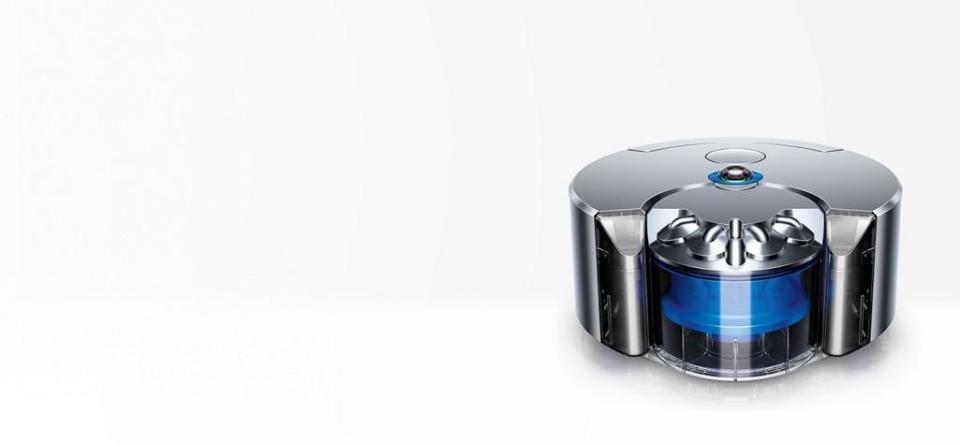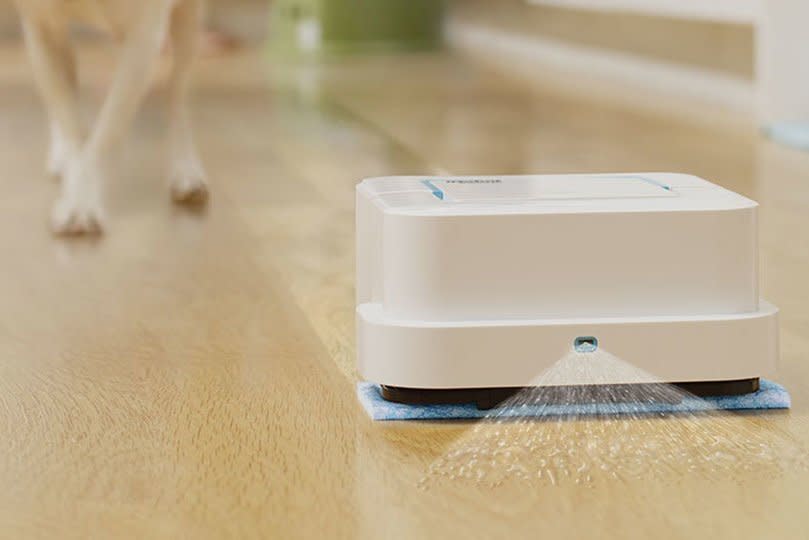Hi-tech tidying: Why the hot new set of influencers is all about cleaning
The latest social media craze doesn’t feature avocados, cats or head-stands on a beach. But if you’re in possession of a sold-out “Minkeh” (that’s an anti-bacterial cleaning cloth, FYI), you too could become a “cleanfluencer”.
The current fascination with cleaning on Instagram has seen a surge in hashtags such as #cleaningobsessed and #cleaningtime, and made stars out of the likes of Sophie Hinchliffe aka Mrs Hinch (two million followers).
This 28-year-old hairdresser from Essex has acquired a “Hinch army” who tune in to watch her scrub her sink and disinfect her toilet, and the products she uses, such as the sponge she calls “Minkeh”, caused the Minky website to crash under the demand.
A post shared by Sophie Hinchliffe (@mrshinchhome) on Mar 24, 2019 at 2:18am PDT
Then there’s Lynsey “Queen of Clean” Crombie, who has 114,000 followers, and Gemma Bray, “The Organised Mum”, with 143,000.
Across the Atlantic, Melissa Maker has more than a million subscribers to her YouTube channel, Clean My Space, where she posts videos such as How to Clean a Fridge! and How to Unclog a Toilet.
Chicago-based Becky Rapinchuk has 310,000 followers on her Clean Mama Instagram page — a typical post shows a sparkling sink with tips on how to speed-clean your bathroom.
“The rise of cleaning influencers on social media is fundamentally about order during uncertain times,” says Dr Stephanie Baker, a sociology lecturer at the University of London and author of the forthcoming book Lifestyle Gurus.
“Tidying up has consistently featured in self-help literature since the 19th century and has achieved tremendous growth with the rise of lifestyle media and home makeover programmes. Beyond having a clean home, it is about creating a structured environment in which to flourish when the world feels disordered.”
So blame Brexit, basically. And although scrubbing the floor isn’t exactly the sexiest of topics, the tech industry is now not only focusing on our smart homes but how to keep them spotless.
Last week Dyson unveiled its latest vacuum cleaner, the Dyson V11 (£499.99), which has a “high-torque floorhead which can intelligently detect the surface it’s on, and change its suction power accordingly”.
“We’ve been developing vacuums for more than 25 years,” says James Dyson, who prototyped 32,500 parts to give the V11 20 per cent more suction than the previous model. “The evolution never stops. With the Dyson V11 cord-free vacuum our focus was not only on improving performance, but on adding intelligence to genuinely assist people’s cleaning.”

We may not have a robot maid like The Jetsons yet but the number of robotic vacuum cleaners and mops on the market make poor Henry and Co’s days seem numbered. Dyson’s 360 Eye Robot Vacuum (£799.99) and the iRobot Braava jet mop (£249) are best-sellers: Dyson’s is voice-activated, has turbocharged suction and use sensors to navigate around obstacles; the iRobot Braava Jet Robotic Mop has a precision jet spray and vibrating cleaning head.
Even everyone’s most hated job — scrubbing the loo — could become a thing of the past, if you’re willing to invest £4,672 in the Kohler Veil Intelligent toilet, which uses UV light and electrolysed water systems to “sanitise surfaces”.
“Anyone who’s been to the Consumer Electronics Show in Las Vegas over the past few years has seen the explosion of home-cleaning robots and appliances,” says trend forecaster Lucie Greene.
“There are now automated laundry washing and folding machines, intelligent dishwashers that detect how dirty your dishes are and set their own cycle, and washing machines that learn your habits and adapt water usage to save money based on the weight of the load.”
It’s not just appliances that are getting smarter, we’re expecting more from our cleaning products too. “Consumers are becoming aware that chemically ‘clean’ or stripped-out spaces and surfaces are not necessarily great for us or the environment,” says Greene. “Millennials expect natural and organic products. That extends to cleaning habits.”

Leading the charge in eco-friendly cleaning products is Tincture, whose white bottles would look more at home at a spa than on your sink. The company is the brainchild of Kensington-based Angelika Davenport, who came up with the idea seven years ago after struggling to find a non-toxic cleaning product that didn’t aggravate her children’s asthma and eczema.
“Studies have found that exposure to chemical agents in cleaning products can be as harmful to the respiratory system as smoking 20 cigarettes a day,” says Davenport. “These cleaning products are going in to the water supply and harming the environment. I didn’t want to clean my home with vinegar but I thought there must be a better way.”
Tincture’s collection of products uses only essential oils and plant extracts, and are free from chemicals, parabens, synthetic fragrances and dyes. The bottles look expensive, and they are (the washing up liquid is £4.99 for 475ml), but Davenport believes Tincture products are an investment in our health and the environment.
“Think how much we spend on takeaway coffees and so on,” she says. “This is about more than just cleaning your home. Why not choose a product that enhances your health and wellbeing?”


